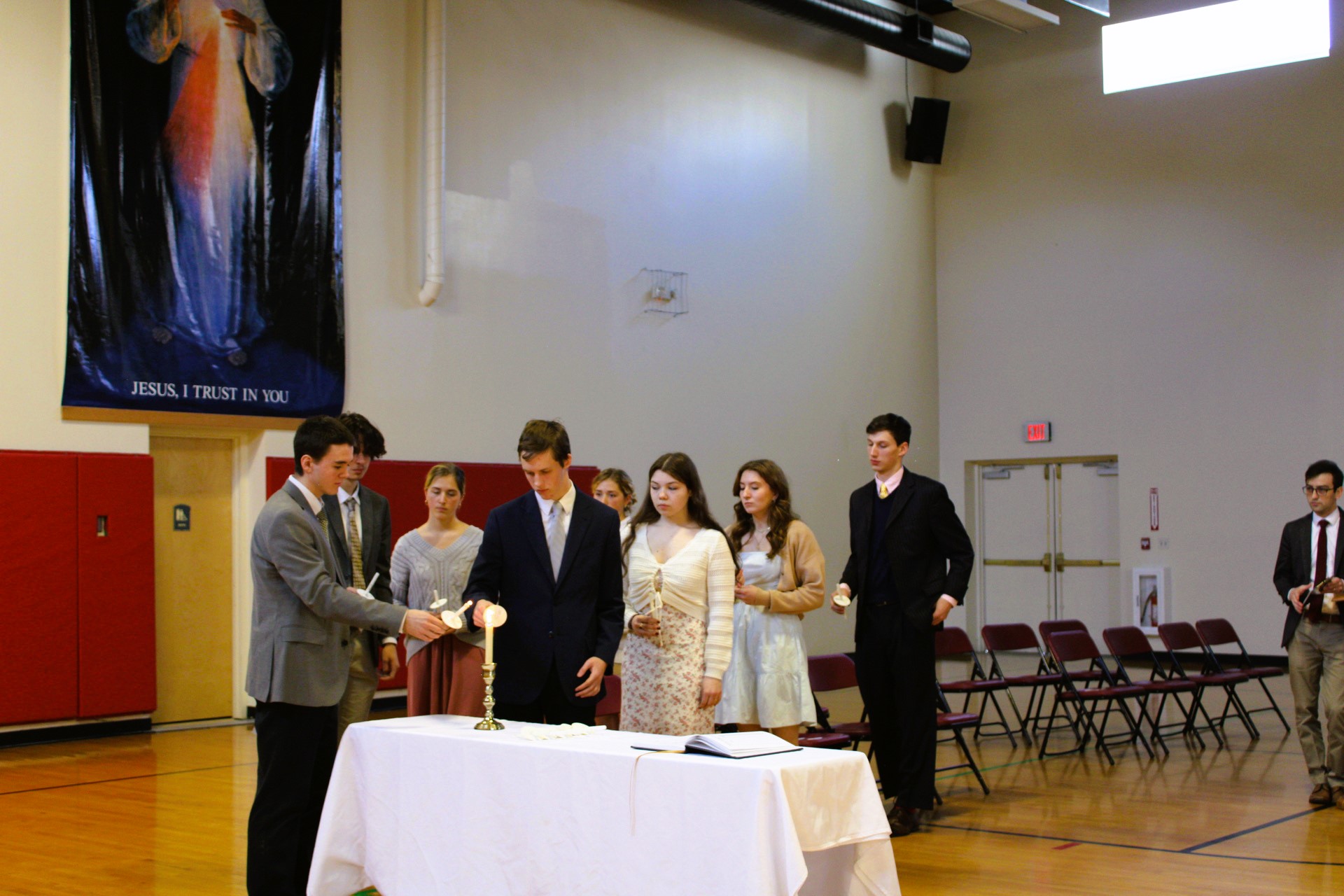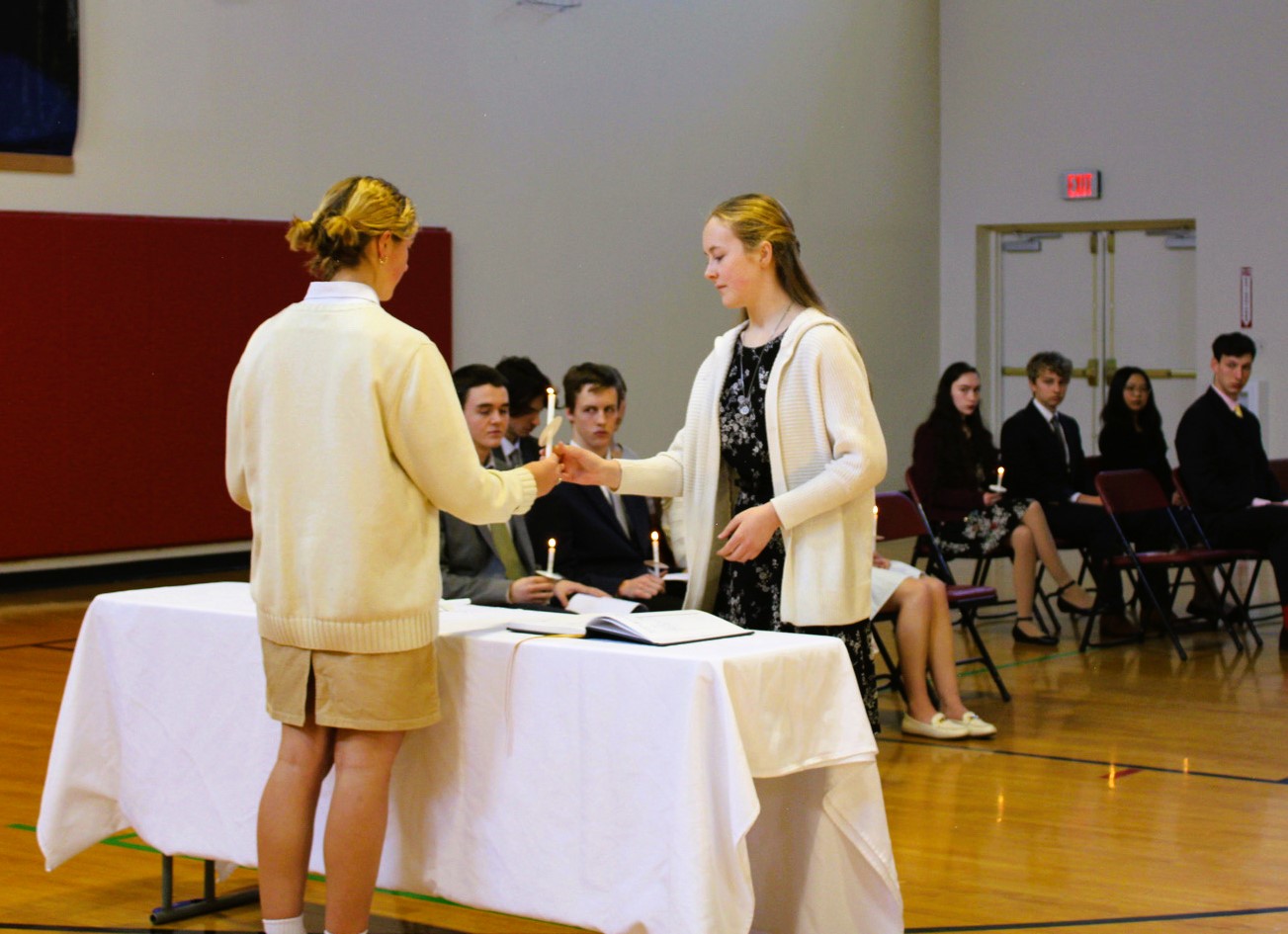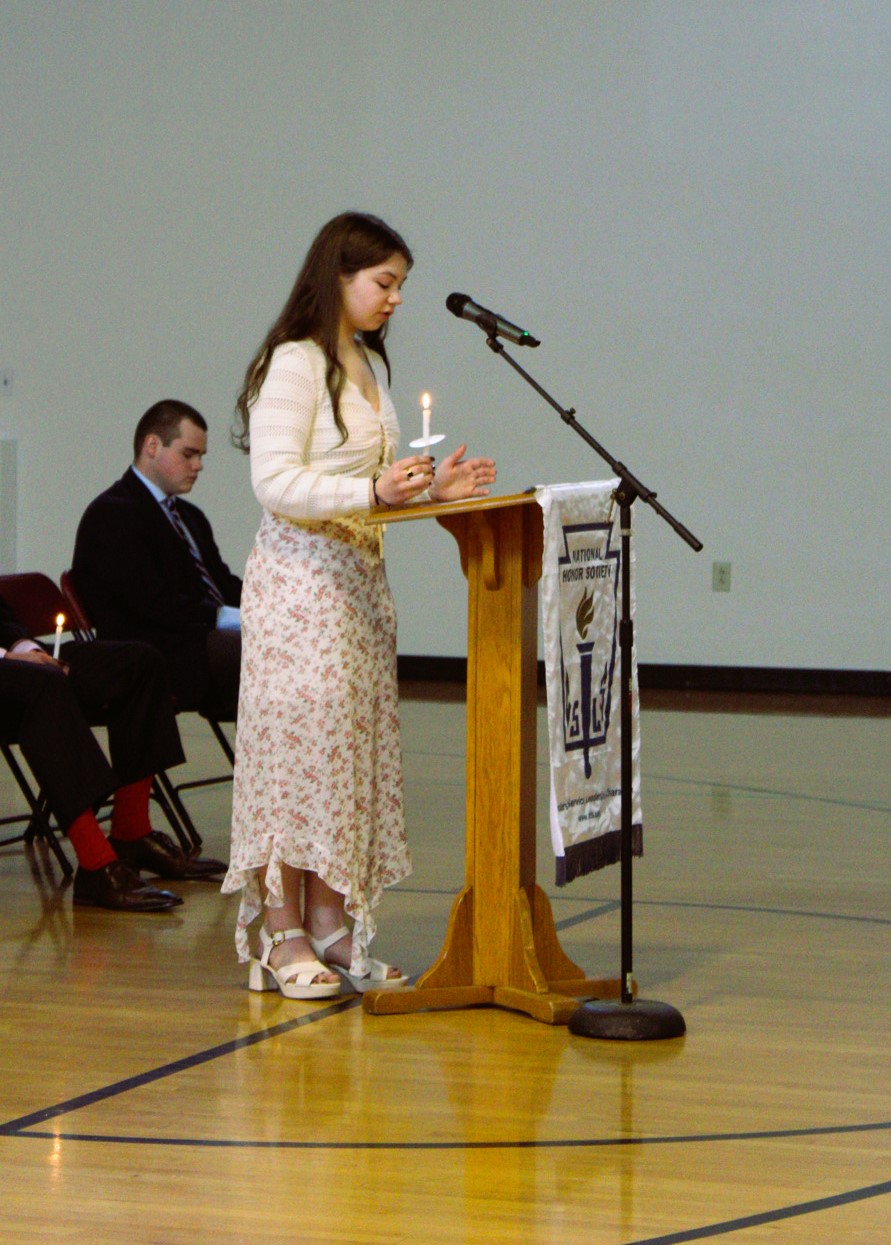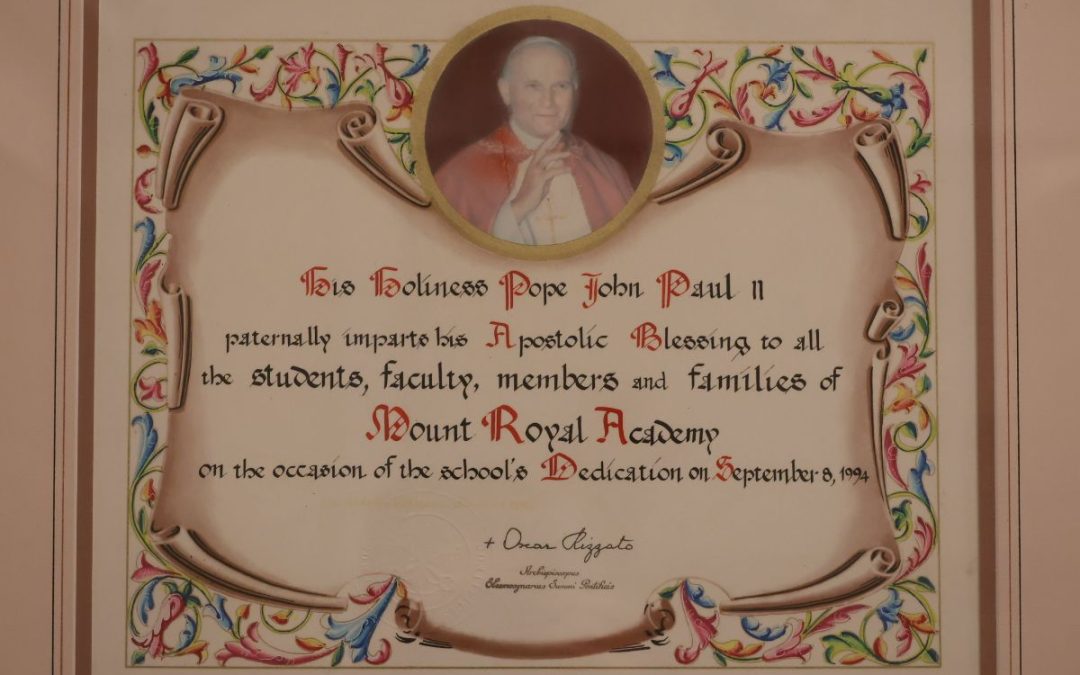
Mr. Ambrose Bean
Today we held our National Honor Society induction ceremony. Each year, this is an opportunity for us to celebrate and acknowledge the achievements of a small group of students who are joining the chapter at our school. I always think it is worth noting that academic excellence accounts for only one of the four NHS pillars. We also want to see our students striving to demonstrate strong character, service, and leadership skills. We do not want them to possess mere skill; we want them to use their skills for the benefit of others and the community as a whole.
This perspective comports with our school’s Catholic identity and mission. In De Beata Vita, St. Augustine notes that, despite her lack of education and academic training, his mother Monica had somehow managed “to master the very citadel of philosophy.” For Augustine and the saints, human excellence is not reserved for the lucky few. We do not need to have an extraordinary IQ score or an abundance of leisure time to devote to study. In faith, the knowledge and love of the highest things is accessible to us all, and that makes extraordinary virtue possible for everyone. All it takes is a little cooperation on our part. God’s grace does the work!
Please join us in congratulating this rising group of student leaders who are committed to these ideals. We look forward to watching them continue down this path that they have wisely chosen for themselves. Below you can find the student speeches that were delivered at our ceremony today (one for each NHS pillar).

Luke Moorehouse on Service
As members of NHS, we are asked to live out the virtue of service. Especially in such a small community, traditional opportunities of service can be challenging to find for a student led group. However, service is not so much about actions as it is about identity. The pillar of service means that we must not only do acts of service, but we must become servants. Indeed, the entire Christian life demands this. As in all virtue, we see the supreme example in Christ. The Incarnate God washed the feet of his disciples. He became man to serve our most fundamental need: the need for God. Christ desired wholly to do the will of his master: “not my will, but thine be done.” And what is the will of our Heavenly Master? Feed the hungry, give drink to the thirsty, clothe the naked, visit the sick. In short, serve your neighbor.
Unfortunately, even the corporal works of mercy can be unavailable to us on a consistent basis at the NHS. Still, love of neighbor is always possible. No matter how much we do, we should realize “We are unprofitable servants; we have only done what it was our duty to do” (Lk 18:10). There is always more that can be done. As an organization, NHS exercises this duty of service mainly by organizing school dances and hosting events like bake sales. As individuals, however, we are called to carry our identity as a servant into every area of life. St. Therese is the perfect model of this: do small things with great love. Become a servant in everyday life. Then, we will hear Christ say: “well done, good and faithful servant; because thou hast been faithful over a few things, I will set thee over many; enter into the joy of thy master” (Mt 25:23)

Gabriel Ouellette on Leadership
As members of NHS you will be leaders of our school community. You will have to lead your fellow students by your example. This means that you will have to take it upon yourselves to be disciplined. Behaving in and out of class, being respectful and reverent during prayer, organizing and participating in extra curricular activities such as Students for Life, swing dances and bake sales. It is important, to be a good and responsible leader, that you follow the help and advice given to you by your fellow classmates, they are the ones who will help you through your journey in NHS. And finally the best way to be a leader is by following the example of Christ, through the beatitudes Christ gives us the formula to live a holy and responsible life, only through him can you be the leaders he is calling you to be.

Kaitlyn Costello on Scholarship
What is scholarship? It is not the 3.5 GPA that qualified you to receive an NHS application in the first place. It is not a grade you receive on an essay. It is not some sort of gene that you inherit from your parents. Rather, scholarship is a habit – an intentional habit of hard work. Scholarship is the discipline that got you that 3.5 GPA. Scholarship is the effort you put into writing that essay. Scholarship is the desire to know the truth and possess goodness simply for the sake of knowing the truth and possessing goodness.
Scholarship is, in part, the desire and drive to do what is right in any given circumstance, and doing what is right is doing God’s will. Scholarship is a disposition that assists in orienting you towards doing the will of God.
St. Paul says “Whatever you do, work at it with all your heart, as working for the Lord” .Paul does not say work heartily only in matters of great importance, but in all situations, whatever your task. This being said; now work, even unimportant and seemingly futile tasks, take on a new meaning, a new importance, and a new value. Putting effort into work is no longer dependent on the nature of the work. We are invited to put effort into all the work we do, from learning our ABCs in preschool, and doing our times tables in fourth grade, to writing a thesis paper in our final year of college. This is what scholarship is all about – completing any work you are given to the utmost of your ability.
Harrison LaRose on Character
Each person possesses a gift called Character. Some may say character is found in behavior, attitude, temperament, or habits. Others may say character is the same thing as personality, and is mostly made up of your interests. However, in order to fully understand character we should first understand where it came from. When God creates a human he gives him a body, mind, and soul. Human beings are created to know, to serve, and to love God and others. As we live, we learn how to do these things with our everyday actions. Because God gave man free will, we have the ability to choose each individual thought, word, or action. These choices are what form your soul, and create your character. Your actions form your soul, and then your soul influences your actions.
This being said, character is not just your appetite or temperament or behavior; these are the expressions of character. Character is the part of the human being which renders man capable of loving, serving, and knowing. This is demonstrated in the lives of the saints, where they learn of the love God has for us, and growing in virtue they sacrifice their lives for the good of their neighbor. Furthermore, Christ has given us the Beatitudes to teach us what it means to have true character. By becoming poor in spirit, patient, understanding, merciful, pure in heart, searching always for what is good and true, accepting sacrifice and hardships: we learn what the essence of character is. Christ emphasizes the importance of these characteristics by stating “for theirs is the kingdom of heaven.”
The four pillars of the National Honor Society are character, service, leadership, and scholarship. Being a part of NHS gives you the opportunity to build your character because of these pillars. Our job of helping our community by serving others when they are in need, teaches us to know our community and love all who are around us. These pillars teach us to become poor in spirit by forgetting ourselves, to be patient in hardship, to search out those who need help, and to sacrifice our time and energy when we don’t feel like it. These are what builds a strong character.



